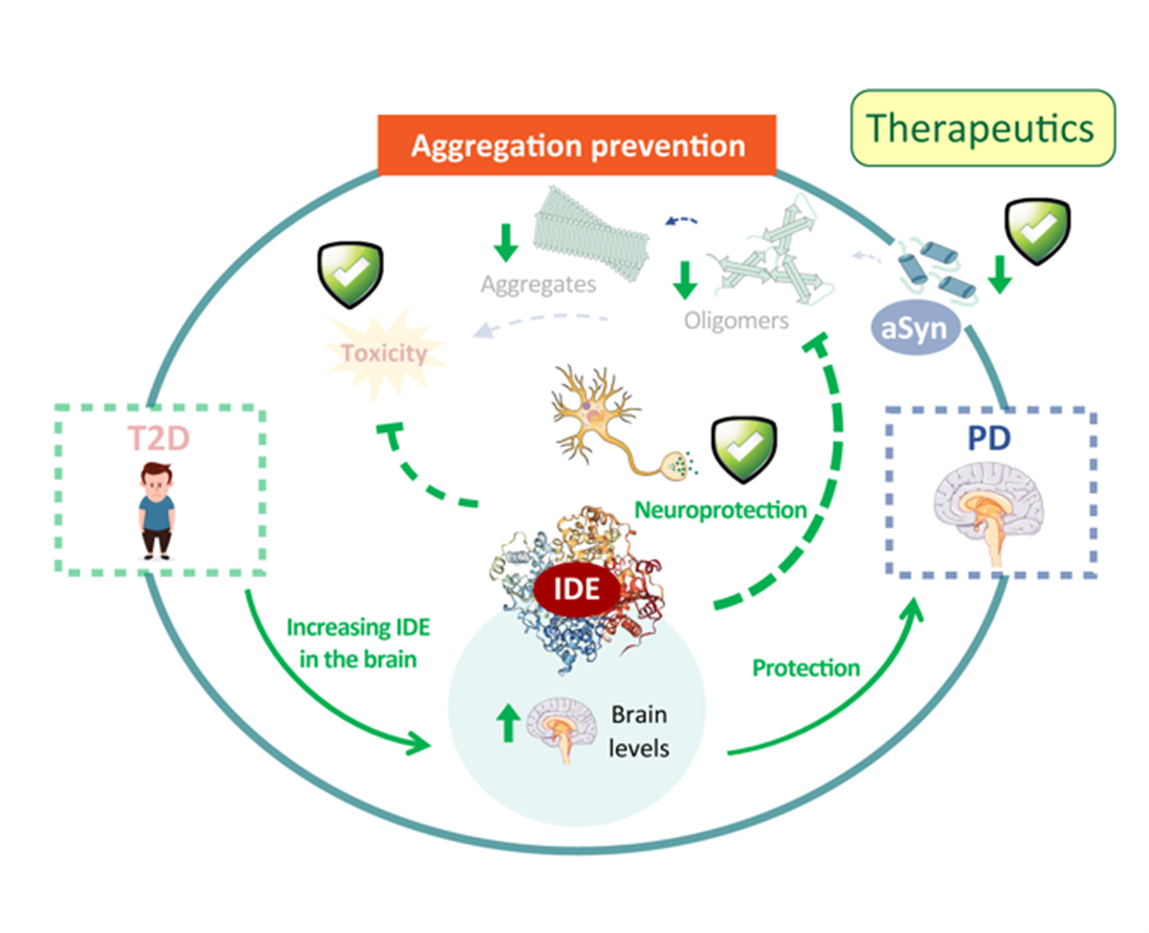Researchers Hugo Vicente Miranda and Maria Paula Macedo were awarded by Michael J. Fox Foundation relevant funding to understand if the insulin-degrading enzyme can protect against the loss of neurons in the brain.
It is known that in Parkinson's disease (PD), the clumping of the protein alpha-synuclein in the brain may lead to the death of neurons. It was recently shown that insulin-degrading enzyme (IDE) can prevent alpha-synuclein clumping in the pancreas. Moreover, it is also known that IDE levels are decreased in both elderly individuals and in patients with type-2 diabetes.
Based on these premises, Hugo Vicente Miranda and his team will investigate the role of IDE in the brain, in preclinical animal models of PD and type-2 Diabetes, to understand if this enzyme also confers a protective role against alpha-synuclein pathology in the brain. Specifically, the team will combine these disease models to explore the impact of diabetes-induced reduction of IDE levels in the brain, on a mouse model of Parkinson's disease. In addition, the researchers will also test if restituting or increasing the levels of this enzyme in the brain can prevent or arrest the progression of PD.
In other words, we can picture IDE as a well-oiled machine that keeps preventing this sticky protein alpha-synuclein from clumping and becoming toxic in the brain. With diabetes or upon ageing, this machine gets rusted and no longer protects the brain. In this project, the researchers aim to fix and increase the number of this machine units and allowing to arrest or delay the progression of Parkinson’s disease.

This project counts with the collaboration with Luísa Lopes, principal researcher at the Instituto de Medicina Molecular João Lobo Antunes, and its success represents a step towards the development of a novel therapeutic strategy for Parkinson’s disease. It will also enable to bring new researchers into this field of research, that will help fighting Parkinson’s disease.
For Hugo Vicente Miranda, coordinator of this project, receiving funding from the Michael J. Fox Foundation is a privilege. Hugo Vicente Miranda specifies that "this award will allow us to pursue a novel therapeutic strategy for PD, one of the drivers of our research group, tackling an urgent need for PD patients", and considers that being awarded by the MJFF is "a validation that our research strategy is on the right track, is highly translational, and is recognized at the highest international level".
At the global level, this project contributes directly to Sustainable Development Goal 3 (SDG 3) - Good Health and Well-Being, as its success will help to promote well-being and a healthier life for patients with Parkinson's Disease and type-2 diabetes, particularly for the elderly population, at greater risk of developing these diseases.